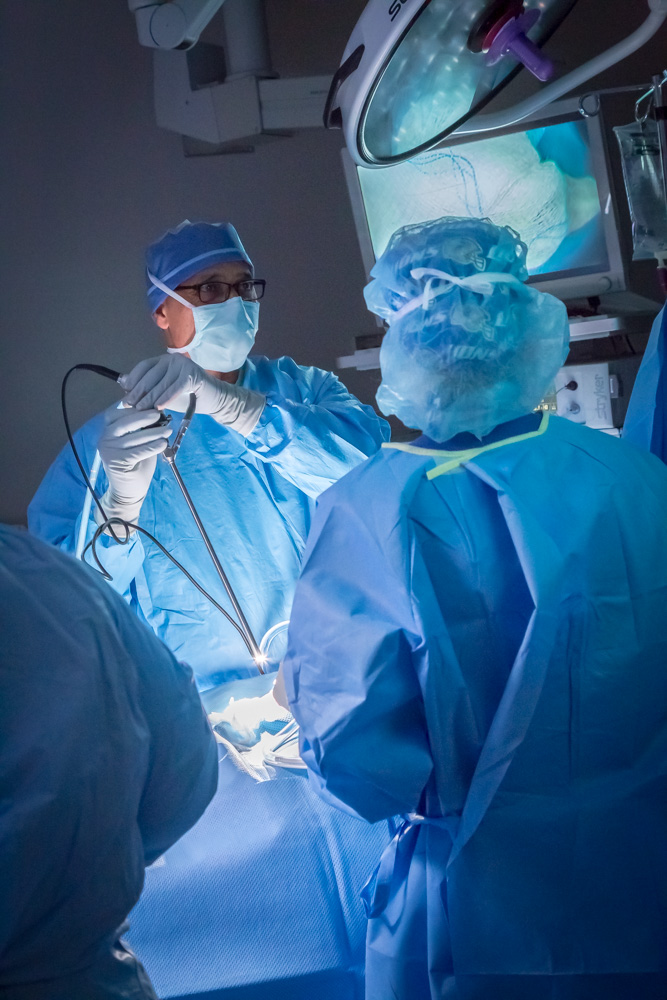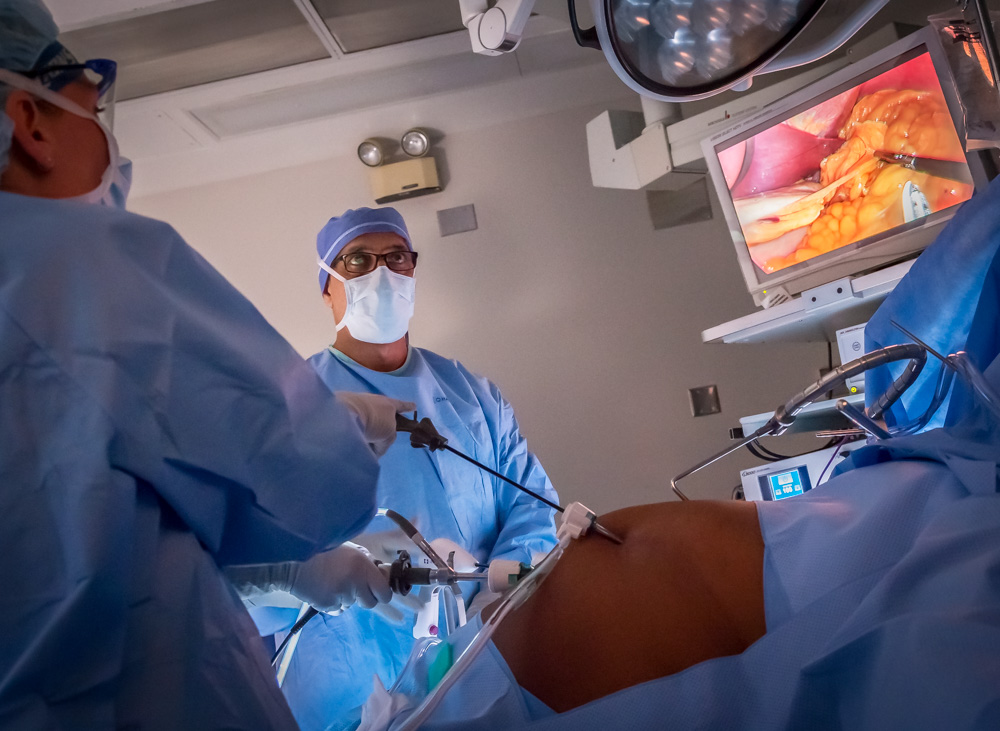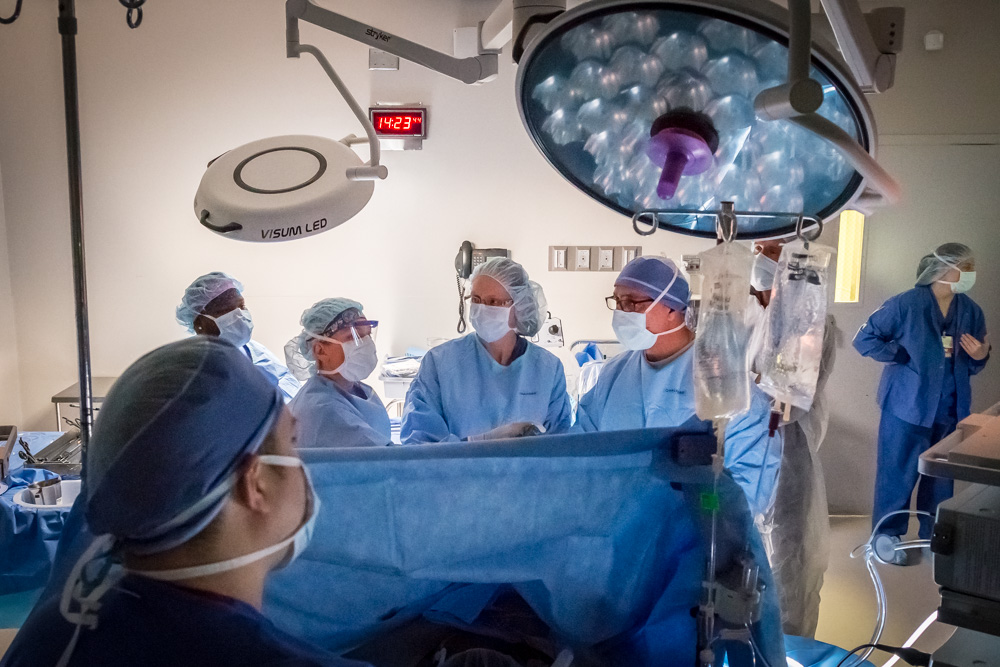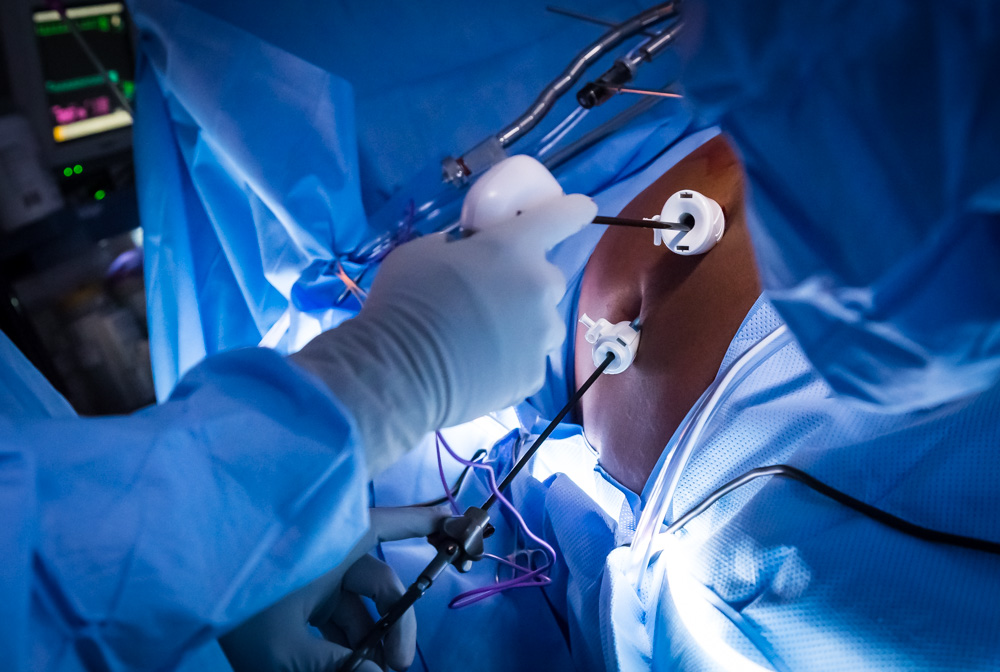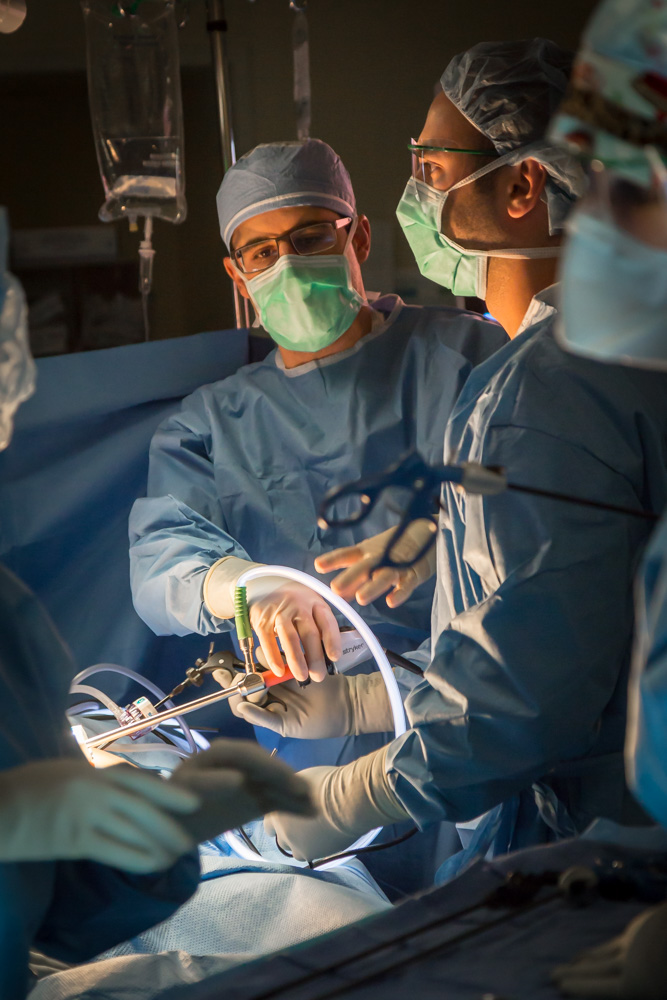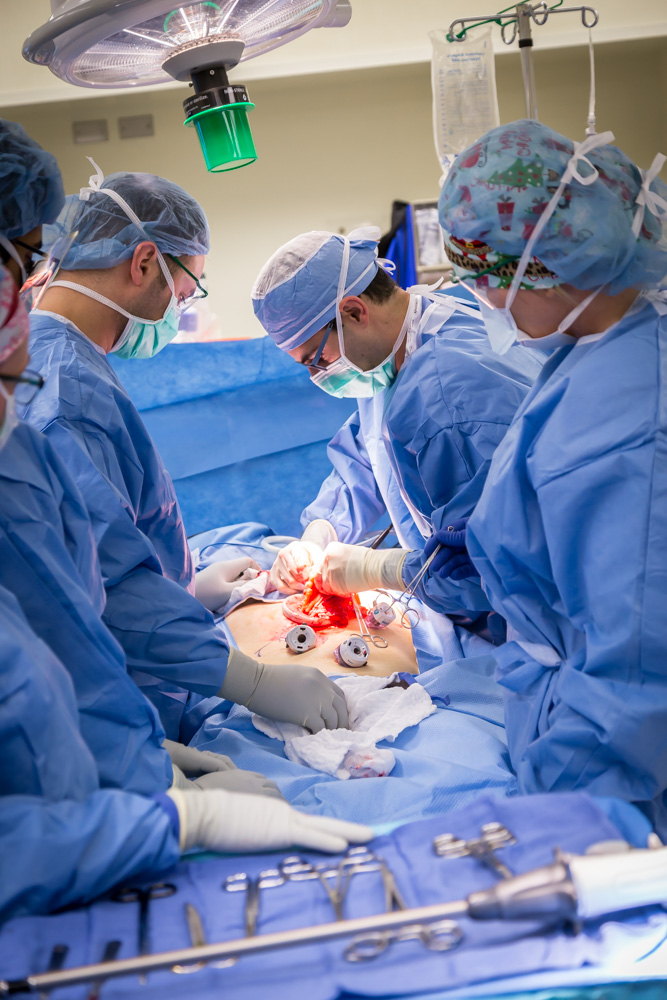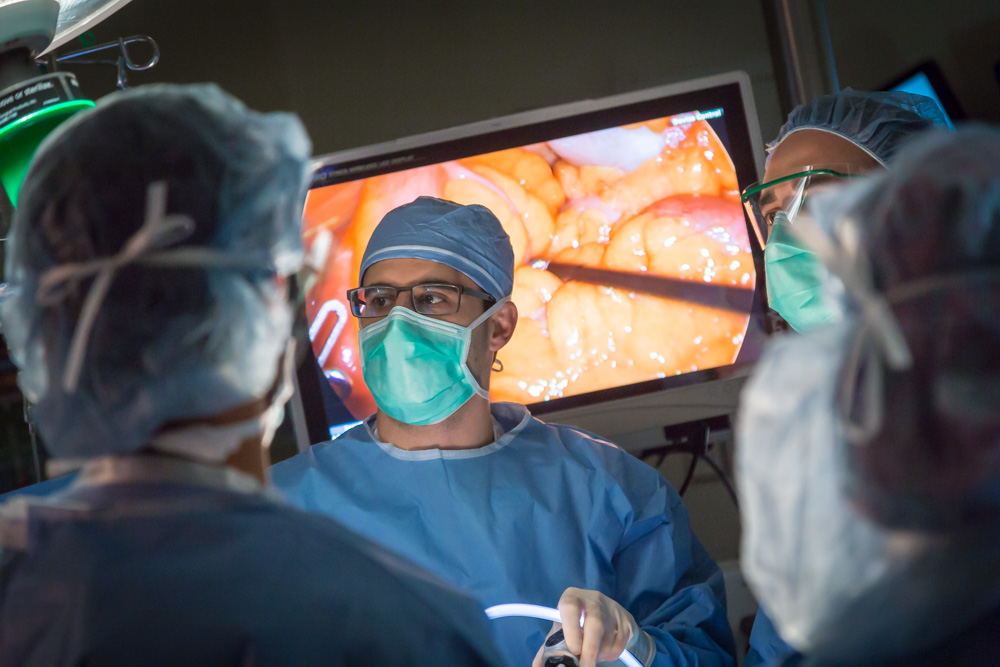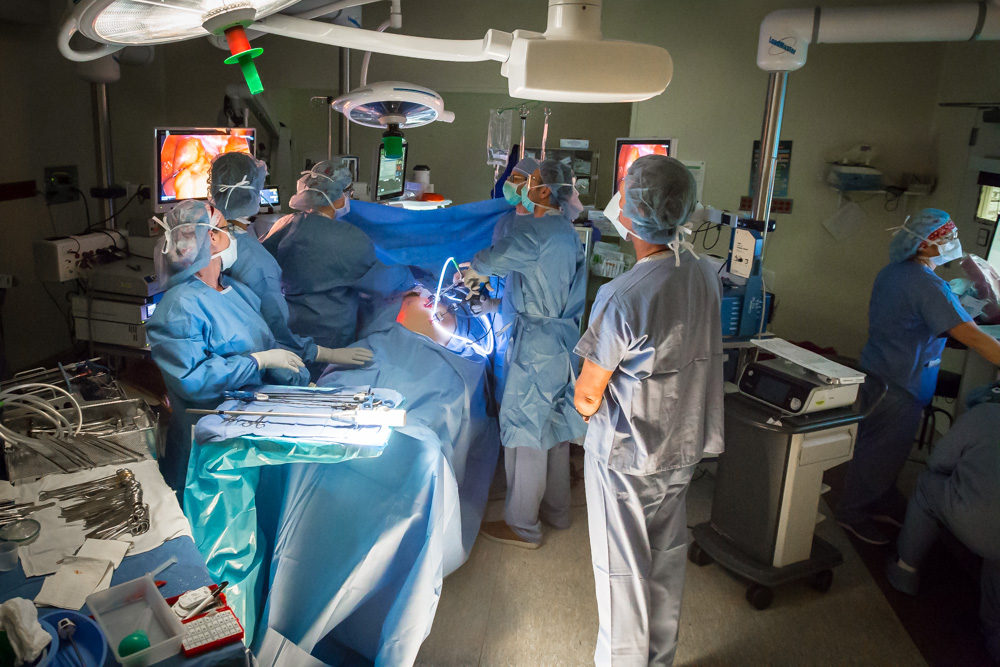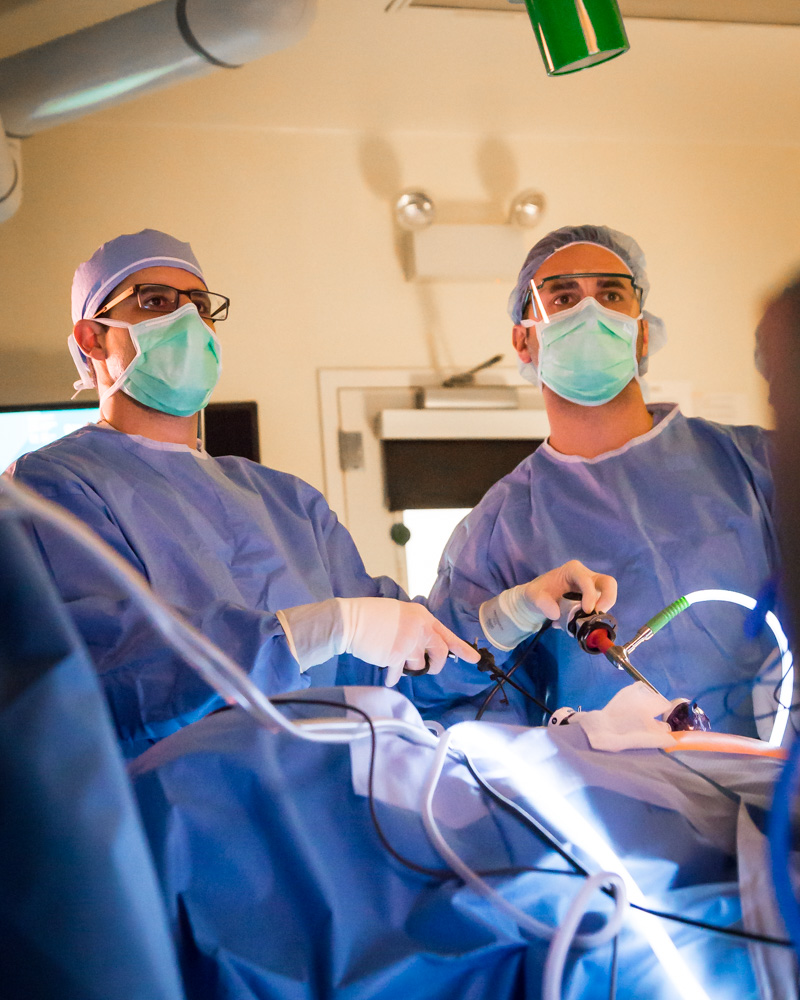For many people, the thought of having surgery is terrifying. So, My City Wellness has “scrubbed in” with talented local surgeons as they performed a variety of procedures – a peek behind the curtain, if you will. Our sincere thanks to doctors Michael Kia, MD and Jamal Farhan, MD for their gracious cooperation in creating this ongoing special section.
MICHAEL KIA
DO, FACOS, FACS
General and Bariatric Surgery Specialist
Jamal Farhan
MD, FACS
Surgical Director, Hurley Bariatric Center
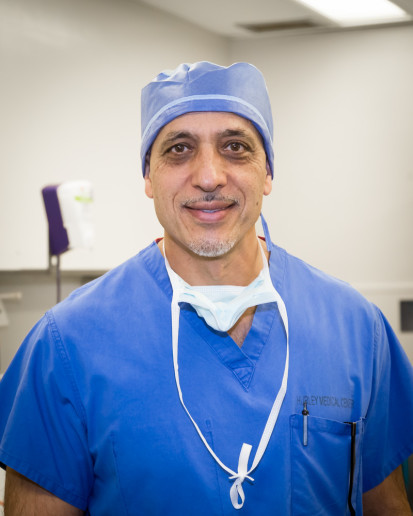 Dr. Jamal Farhan MD,
Dr. Jamal Farhan MD,
FACS Surgical Director, Hurley Bariatric Center
CREDENTIALS: Dr. Farhan is a MBSAQIP-verified surgeon (Metabolic and Bariatric Surgery & Quality Improvement Program) and a Fellow, American College of Surgeons. He graduated with honors from the University of Puerto Rico School of Medicine in 1988. With more than 29 years of diverse experience, his areas of specialization are general, bariatric and trauma surgery.
Laparoscopic Sleeve Gastrectomy Hurley Medical Center
Candidates for this procedure are typically morbidly obese, or have a body mass index (BMI) of 40 or higher, or a BMI of 35-39.9 with one or more severe medical conditions related to morbid obesity, such as high cholesterol, hypertension, heart disease, stroke, sleep apnea, fatty liver disease or Type 2 diabetes.
The most significant benefits of this procedure include resolution of many common chronic health conditions, such as diabetes, sleep apnea, high blood pressure, hyperlipidemia, and others, as well as weight loss due to hunger control as a result of hormonal changes that occur following surgery, and improved quality of life through increased ease of physical movement due to weight loss.
Almost all sleeve gastrectomy procedures at Hurley Bariatric Center are performed using laparoscopic methods, which is much less invasive than traditional, large open incision procedures. Additionally, healing time is shortened and infection risk is reduced with laparoscopic procedures.
On average, Hurley Bariatric Center patients who underwent Sleeve Gastrectomy lose between 60-70% of their excess body weight and have significant resolution of their chronic health conditions, no longer requiring medications to treat many of the health ailments they struggled with before having surgery.
This procedure is performed in the hospital and there is an expected 1-2-night stay post-op. Patients will start on a liquid diet for a few weeks after surgery, with their diet being gradually advanced to smaller portions of common foods over several months. Recovery time averages 2-4 weeks and patients can usually return to work in that time frame, depending upon the nature of their job. All general restrictions are usually lifted at four weeks and patients can resume normal daily habits.
A patient considering this surgery should be aware that the Sleeve Gastrectomy procedure involves removing approximately 75% of the stomach. This is the most commonly performed surgical metabolic weight loss procedure in the country. The risks associated with Sleeve Gastrectomy are low, considered similar to having a gallbladder removed. Patients should be prepared to make lasting diet and lifestyle changes if they want to be successful long-term.
Dr. Farhan has performed close to 1,000 cases at this time.
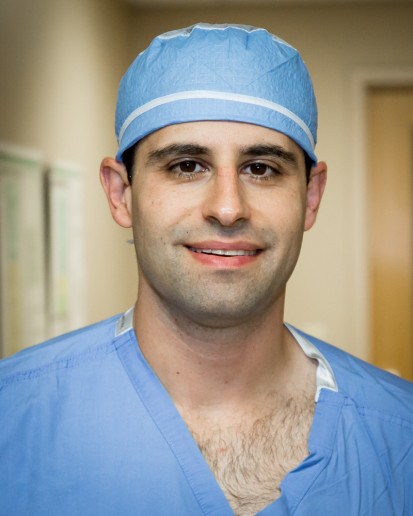 Dr. Michael Kia DO, FACOS, FACS General and Bariatric Surgery Specialist
Dr. Michael Kia DO, FACOS, FACS General and Bariatric Surgery Specialist
CREDENTIALS: A board certified general surgeon, Dr. Michael Kia has fellowship training in minimally invasive and robotic surgery and completed his fellowship in advanced laparoscopic and robotic surgery at the world-renowned University of Texas in Houston. He received his B.S. from the University of Michigan, his medical degree from Touro University in San Francisco, and performed his residency in general surgery through Michigan State University. Dr. Kia is an Associate Clinical Professor of surgery at MSU and a Fellow of the American College of Osteopathic Surgeons.
Laparoscopic Cholecystectomy McLaren Flint
Gallbladder disease is very common with gallstones and nonfunctioning gallbladder, and this minimally-invasive removal of the gallbladder is a very common outpatient procedure. It is said that no procedure has been more instrumental in ushering in the laparoscopic age than laparoscopic cholecystectomy has.
A cholecystectomy is most commonly performed to treat gallstones and the complications they cause. Your doctor may recommend a cholecystectomy if you have: gallstones in the gallbladder or bile duct, gallbladder inflammation or pancreas inflammation (pancreatitis) due to gallstones.
Gallbladder disease is very common in the Midwest. Symptoms include right-upper quadrant or mid-abdominal pain, especially after eating fatty or greasy foods. Other symptoms can include bloating and pain that radiates through to the back.
During this procedure, the surgeon makes four small incisions in the abdomen and inserts a tube with a tiny video camera through one of the incisions. The surgeon watches a video monitor in the operating room while using surgical tools inserted through the other abdominal incisions to remove the gallbladder. As with other laparoscopic surgeries, the technology makes this outpatient procedure one which allows for a short recovery time of 2-3 days. Patients can have surgery on Friday and return to work on Monday.
Dr. Kia has performed this surgery thousands of times with an excellent success rate.
Laparoscopic Colectomy McLaren Flint
Colectomy, or removal of part of the colon, is one of the most common laparoscopic procedures. Conditions treated with this surgery include colon polyps, diverticulitis, ulcerative colitis, Crohn’s disease of small bowel and colon, and some cancerous tumors.
A laparoscopic approach can minimize the stress of surgery with reduced recovery time. A traditional “open” procedure to correct colorectal disorders begins with a large abdominal incision, 8 to 12 inches long. The laparoscope, which is a fiber optic telescope that is connected to a high-resolution video camera, usually gives surgeons a better view of internal organs than they can achieve with the naked eye in a traditional open procedure. Patients lose less blood during laparoscopic surgery than during traditional surgery, and they experience fewer infections and other complications.
Many people are candidates for this procedure, but not all. Individuals considering this surgery should seek out a specialist in laparoscopic surgery. Following the procedure, patients typically stay in the hospital for 2-3 days and recovery is about 7-10 days.
Dr. Kia has performed laparoscopic colectomy hundreds of times, and the current success rate of this procedure is excellent.
Photography By Eric Dutro






